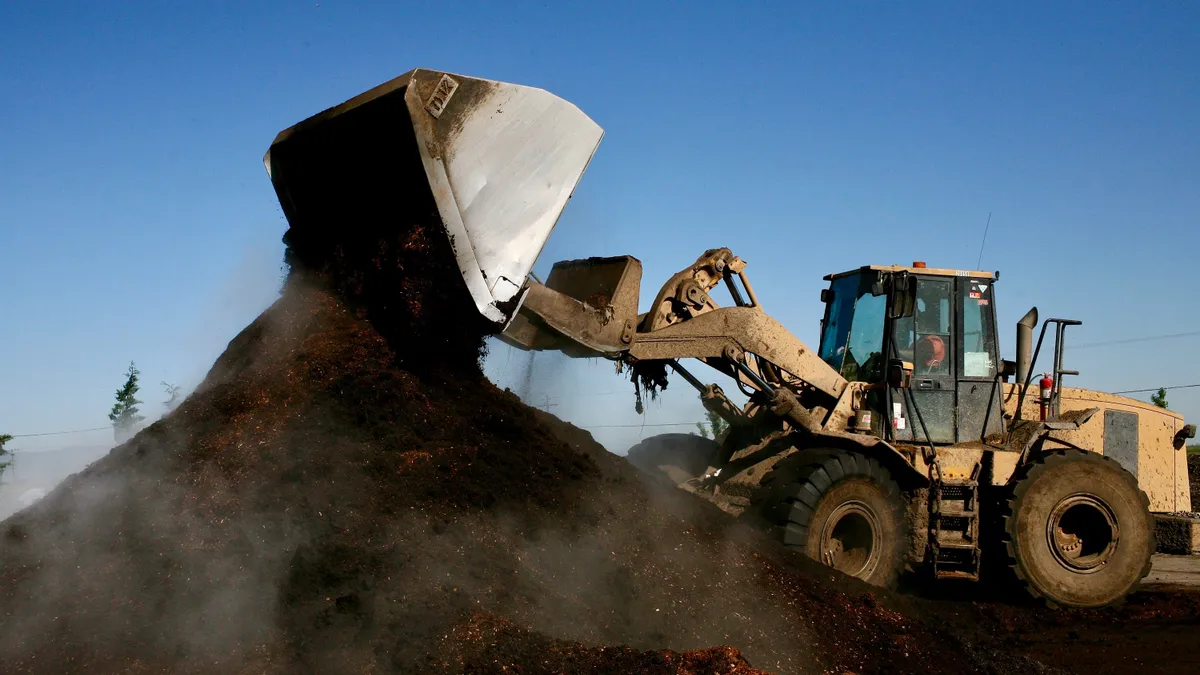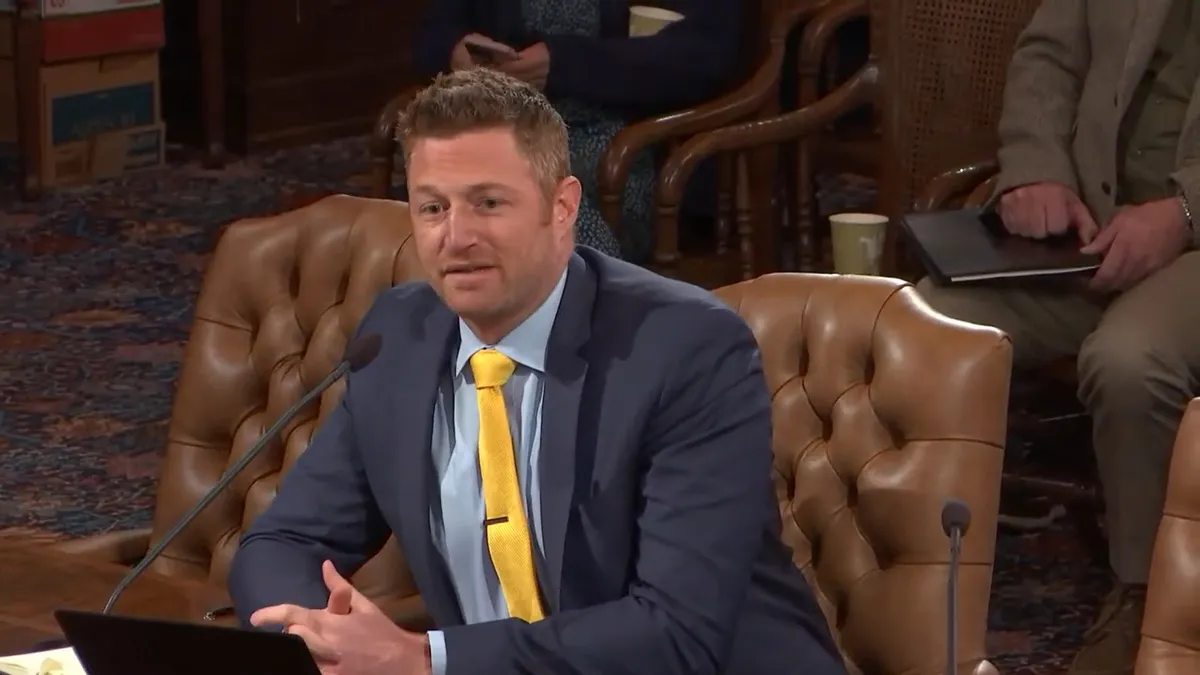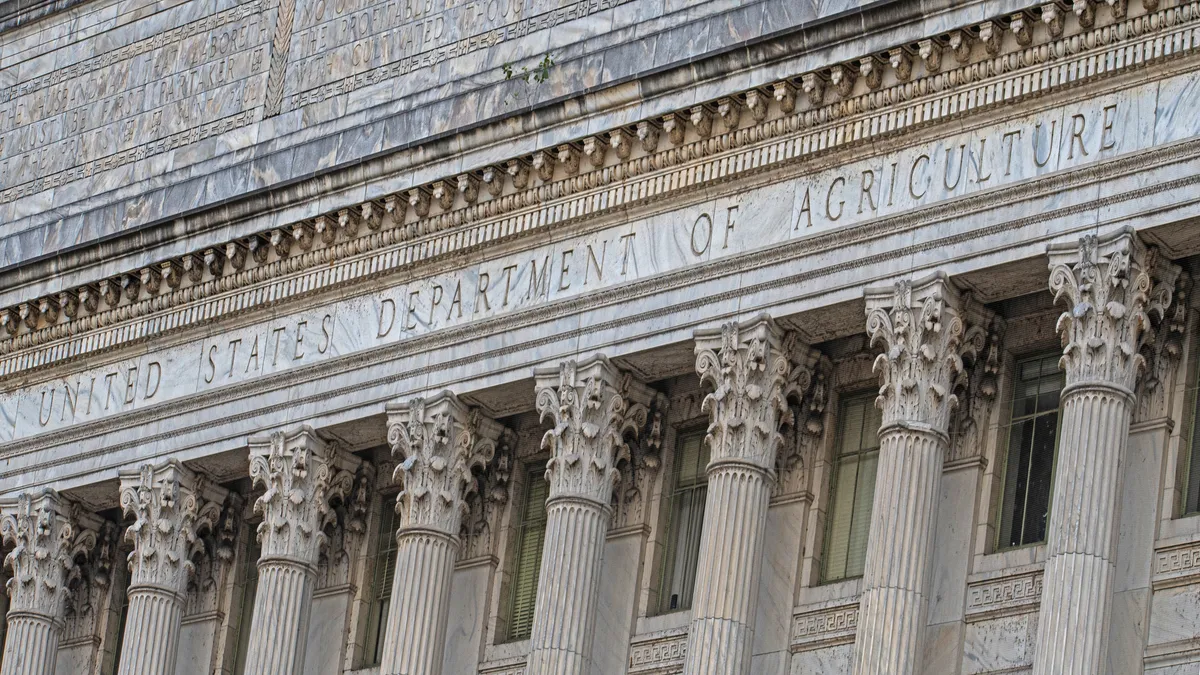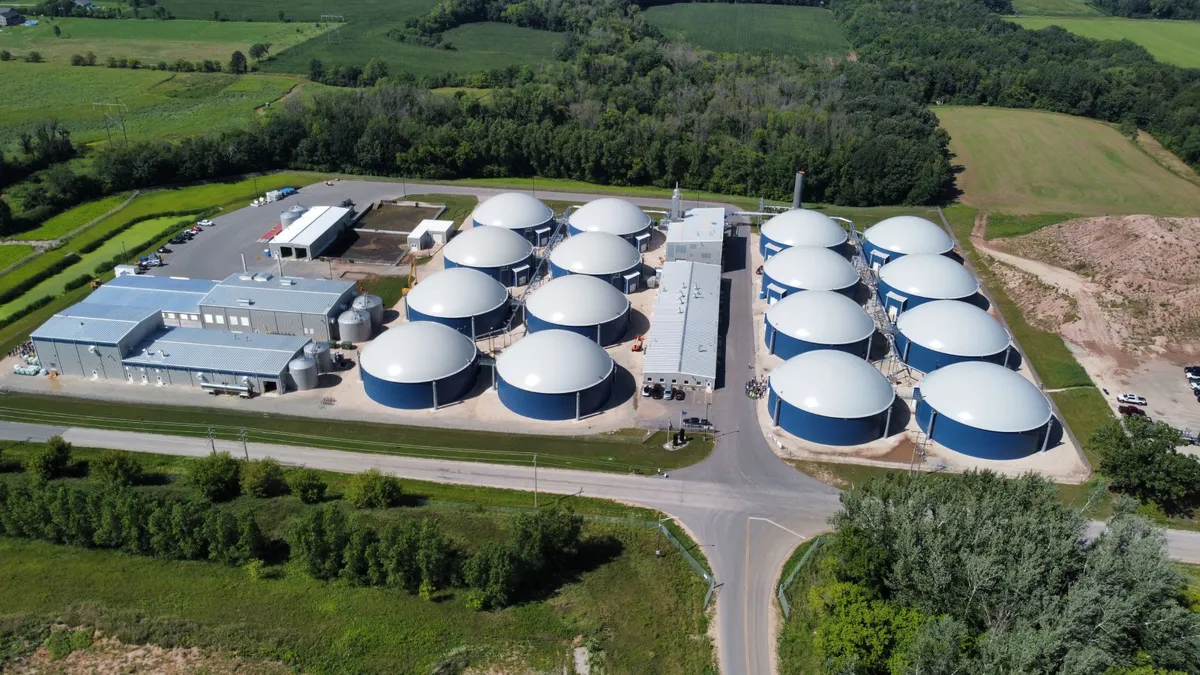California legislators proposed a swathe of amendments to the state’s SB 1383 organics recycling law this legislative session, and four bills are moving forward.
The proposal follow a 2023 report from the Little Hoover Commission, an independent oversight agency, that found the state was behind on its organics diversion targets and recommended pausing or altering requirements to give local governments a chance to catch up.
The bills’ sponsors cited the report in written justifications for the proposals. They address several of the report’s recommendations, including loosening requirements for organic material procurement and providing model legislation or technical assistance to jurisdictions that risk falling behind on SB 1383’s targets to cut organic waste disposal 75% by 2025.
In a legislative analysis for one bill, staff noted that CalRecycle would need to make a variety of amendments to its SB 1383 processes if some or all of the bills pass. In order to make those changes, it would likely incur about $150,000 in costs over two fiscal years.
The Little Hoover Commission supports all four bills. Krystal Beckham, project manager for the agency, said the commission’s staff is willing “to help however we can.”
“We are happy that the legislature is taking up this issue,” she said.
They are among a wide range of bills affecting the waste and recycling industry that survived California’s crossover deadline, by which legislators must have passed bills out of their original chamber.
| Bill Number | Focus Area | Bill Status |
| SB 972 | Technical assistance | Passed Senate |
| SB 1045 | Compost facility zoning model | Passed Senate |
| SB 1046 | Compost facility permit model | Passed Senate |
| AB 2346 | Recycled organics procurement | Passed Assembly |
Providing technical assistance for SB 1383’s provisions
SB 972 would require CalRecycle to provide more technical assistance to local jurisdictions working to comply with SB 1383. The bill also directs the department to provide a progress report to the legislature twice, once in 2028 and once in 2031.
Supporters say the bill addresses several of the recommendations made by the Little Hoover Commission. It would require CalRecycle to develop technical assistance resources and a streamlined procedure for jurisdictions to request that assistance. That could include “data reporting, education programming, local program development, procurement target clarification support, and coordination of state policy goals that affect organic waste,” according to the bill text.
An early version of the bill had a provision requiring CalRecycle to meet with the State Air Resources Board and CalEPA to identify and address “duplicative permitting processes for organic waste facilities,” but that section was removed. Other supporters include California Environmental Voters, League of California Cities and Rural County Representatives of California. No opponents were recorded in a May legislative analysis.
Zoning support for compost facilities
SB 1045 would similarly require the state’s Office of Planning and Research to develop best practices for siting composting facilities. A technical advisory would require a sample general plan, goals, policies, implementation measures and model ordinance, per a legislative analysis. That would need to be completed by June 1, 2026, per the bill text.
The bill would also require cities and counties to use the technical advisory in their next zoning update beginning in June 2028. The bill's sponsor said siting and permitting composting facilities in the state can be overly time-consuming, taking as long as a decade to complete the process. The state still needs about 50 to 100 new composting facilities to meet diversion and processing goals, according to prior information from CalRecycle cited in the bill analysis.
The California Compost Coalition and Californians Against Waste were joined by several waste companies, including Recology, Republic Services, Waste Connections and WM, in supporting the bill. No opponents have been recorded.
Permitting support for compost facilities
To further advance the development of composting infrastructure, SB 1046 would require CalRecycle to develop a program environmental impact report for small to medium composting facilities. Such a tool could streamline the process for jurisdictions to analyze the impact of new composting facilities, which lawmakers hope will reduce the time it takes to get shovels into the ground on new facilities.
The bill authors note that the department developed a PEIR for anaerobic digestion in 2011 in a process that involved more than 50 stakeholders. If the bill passes, CalRecycle would be expected to complete a PEIR for small to medium composting facilities by 2027. Small facilities are defined as having capacity for up to 5,000 cubic yards of material at one time. Medium facilities are defined as handling up up to 12,500 cubic yards.
Local chapters of environmental groups 350 and the Climate Reality Project supported the bill, as well as the California Compost Coalition, Californians Against Waste, League of California Cities, Republic Services' Western Region, Rethink Waste and others.
Easing organic material procurement requirements
AB 2346 would expand the kinds of facilities that count toward jurisdictions’ organic materials procurement targets. Material acquired from community composters and on-farm composters would count toward procurement targets if the bill passes.
Procurement requirements in SB 1383 are designed to provide a market for recycled organic materials. But since processing capacity is limited, jurisdictions have relatively few sources of material. AB 2346 loosens the definition for eligible facilities, and would also allow jurisdictions to count material used by service providers (such as a landscape company applying compost on behalf of a city) toward procurement targets.
Supporters include California Compost Coalition, Californians Against Waste, League of California Cities and multiple large cities and counties.























